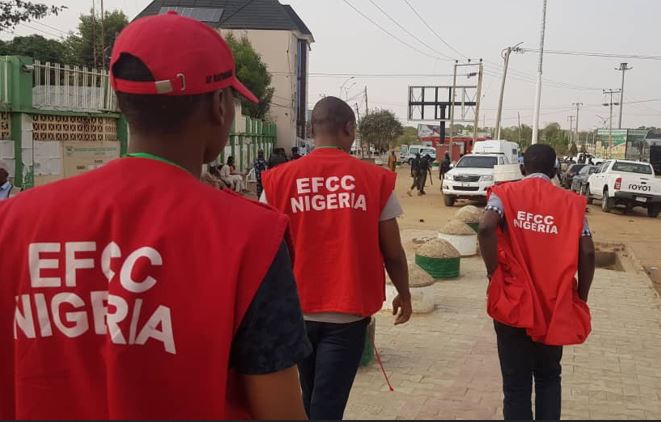The Economic and Financial Crimes Commission (EFCC) has launched a comprehensive investigation into alleged large-scale fraud involving the rehabilitation of Nigeria’s Kaduna, Warri, and Port Harcourt refineries. This investigation centers around the suspected mismanagement of a staggering $7.2 billion earmarked for the overhaul of these crucial national assets. The EFCC’s probe has led to the arrest of Umar Isa, the former Chief Financial Officer of the Nigerian National Petroleum Corporation Limited (NNPCL), who held a pivotal role in overseeing the financial aspects of the refinery rehabilitation projects. The investigation also extends to other key officials within the NNPCL who were involved in the maintenance and execution of these major projects. The EFCC is scrutinizing their roles for potential offenses including abuse of office, corruption, diversion of public funds, and acceptance of kickbacks from contractors.
The investigation delves into the specifics of fund allocation for each refinery’s turnaround maintenance (TAM). For the Port Harcourt refinery, a substantial sum of $1,559,239,084.36 was allocated. The Kaduna refinery received $740,669,600, while the Warri refinery was allocated $656,963,938. These substantial figures represent a significant investment in Nigeria’s refining capacity, and the EFCC is determined to ascertain whether these funds were utilized appropriately and effectively for their intended purpose. The arrest of Isa, the former CFO, highlights the EFCC’s focus on individuals who held significant financial authority and oversight within the NNPCL during the period of these projects.
As the former CFO, Isa played a crucial role in the disbursement of funds for the TAM of all three refineries. His position afforded him a comprehensive view of the financial transactions related to these projects. The EFCC’s investigation is meticulously examining the flow of funds to identify any irregularities, discrepancies, or instances of misappropriation. The investigation is also targeting other key officials who were involved in the decision-making processes and execution of the refinery rehabilitation projects. The agency aims to uncover any potential collusion or corrupt practices that may have contributed to the alleged mismanagement of the allocated funds.
Beyond Isa’s arrest, the EFCC has also detained Jimoh Olasunkanmi, the former Managing Director of the Warri Refinery. This arrest further broadens the scope of the investigation and suggests that the EFCC is pursuing multiple lines of inquiry to uncover the full extent of the alleged fraud. Olasunkanmi’s role as the head of the Warri refinery places him at the center of the operations and financial dealings related to that specific facility. His detention allows the EFCC to scrutinize his actions and decisions regarding the utilization of the funds allocated for the Warri refinery’s TAM.
The EFCC’s investigation into the refinery rehabilitation projects comes at a time of heightened scrutiny of public spending in Nigeria. The country faces significant economic challenges, and the efficient and transparent use of public resources is paramount. The successful rehabilitation of these refineries is crucial for Nigeria’s energy security and economic stability. The alleged mismanagement of these funds represents not only a financial loss but also a setback for the country’s efforts to improve its refining capacity and reduce its reliance on imported petroleum products.
The ongoing investigation is a significant development in Nigeria’s fight against corruption. The EFCC’s actions demonstrate a commitment to holding individuals accountable for the mismanagement of public funds, regardless of their position or influence. The outcome of this investigation will have significant implications for the future of public projects in Nigeria and will send a strong message about the consequences of corruption. The thorough investigation of these allegations and the prosecution of those found culpable will be crucial for restoring public trust and ensuring that public funds are utilized effectively for the benefit of the Nigerian people. The EFCC’s efforts represent a crucial step towards greater transparency and accountability in the management of public resources.


